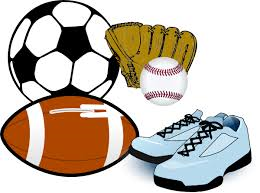C4T#3, Comment 1: " May the force(s) be with you"
This C4T I was given the blog "PRPRN" this stands for Physical Education Practitioner Resource Network. The aim of this blog is to bring together physical education teachers, coaches, physical activity leaders, volunteers and university practitioners from around the world to talk about practice, young peoples’ experiences of physical activity, and research. The leader of the blog is Ashley Casey.
This week’s blog looks at the inherent difficulties of pedagogical change and of stepping away from the “traditional way” of teaching physical education. It asks how we might be increasingly aware of what we can and cannot change in the short term with regards to teaching and learning in PE and how we might know the difference. It also challenges us all to adopt a critical approach to teaching that is grounded in theoretically informed practice or praxis. We learn how to behave in different situations and at different times. I believe We learn when ‘lines in the sand’ might be crossed, should be crossed or must never be crossed. In sport we learn where the hard and fast rules lie and where the grey areas exist. Once we learn these ‘rules of the game’ we then discover how and when we might push the boundaries, perhaps to stretching point while avoiding the breaking point. For example, you only have to listen to the television pundits talking about what happened ‘off the ball’ to realize what a player can get away with and what they can’t. In other words we are socialized into the things that we do through observing and listening to others.
C4T#3, Comment 2: " Knowing the difference between changeable and unchangeable practices"
This week’s blog explores the notion of socialization and asks how much of what occurred to an individual, both before and during a career as a teacher, impacts on the decisions that they make and the practices they hold dear. Drawing on a seminal paper in this field the blog asks us to consider the multiple forms of socialization that shape and meld the teachers that we eventually become. Furthermore it asks us to be more aware of the different (and ongoing) ways that people learn to be teachers. I believe we talk a lot of change in Physical Education, of moving away from the 'traditional methods' and of using new methods. But what if the traditional ways work, what if they do present students the opportunity to progress and get results year on year, why do we then need to 'change' the ways we teach? There needs to be more of a concern about becoming the type of teacher you want to be, of trying new ideas and focusing on your teaching, whether that be as an 'new idea' or 'traditional approach' than bringing about change. By being the teacher they want to be and changing their classroom there is an opportunity to open discussions and doors to change for others. Even though change in others may not be readily seen it is not reasonable to suggest they are unwilling to change their practice or develop their classrooms, it could be considered that they do not feel it necessary to label their teaching, as they do not fit into just one category. After all teaching is not a one-size fits all approach.

No comments:
Post a Comment